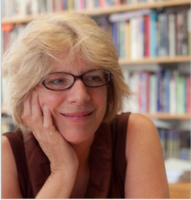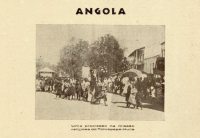Monuments
Articles tagged with Monuments
Tag Archive
- acid house
- acting
- activism
- Activistas
- African photography
- Afro-Port
- Angolan Journalist
- angolana music
- arab spring
- archive de documentation
- arte
- artes performativas
- Batida
- Benjamin Lebrave
- Berlim
- Biodiversity
- Black body
- black power
- body
- border
- collector
- colonialism
- coronavirus
- crioulo
- cultural movement
- cultures
- democracia racial
- equal rights
- Exhibition-Fair Angola 1938
- fall
- feminism
- Festival de Músicas do Mundo
- Festival of Essaouira Gnaoua
- Frantz Fanon
- Gegé Mbakudi
- gender equality
- Gérard Quenum
- Germano de Almeida
- Guinea-Bissau
- Hannah Arendt
- Harare
- história
- history of Africa
- humildade
- ideologia
- informal city
- Interwinings: peripheral arts
- Irene Renée Karanja
- judith butler
- Kurt Kohlstedt
- language diversity
- livros
- lugar de fala
- Lumumba Square
- lusophone
- lusotropicalismo
- midterms
- movies
- mpla
- multiculturalism
- My Kaaba is HUMAN
- myth
- Negros
- nepal
- Nollywood
- Parangolé
- Pedro Pinho
- police
- political protests
- politics of memory
- post-memory
- primatas
- programation
- progressive academia
- protests
- race
- racismo estrutural
- radio
- Remittances
- Resgate
- reverse racism
- revista
- rock art
- Romuald Hazoumé
- rural
- satellite
- sex discrimination
- south
- south african
- Steve Paxton
- The Sudanese Revolution
- theatre
- Tuchangamke
- Uma Biografia”
- urban africa
- uses
- Vital Matter
- We’re still here
- Zé da Guiné
- zines
 Today, I think that the field is challenged more than ever by the increased volatility of debates about what nations remember and consequentially forget. Monuments and memorials are being vandalized, torn down, officially removed. They can no longer be seen as simply part of an historical landscape. Much of this can be understood as battles over the historical narratives of monuments and their power, but it is also about tensions around who the nation mourns and who it sees or does not see as having a “grievable life” in Judith Butler’s term. So I see memory activism as a key site for the production of memory scholarship.
Today, I think that the field is challenged more than ever by the increased volatility of debates about what nations remember and consequentially forget. Monuments and memorials are being vandalized, torn down, officially removed. They can no longer be seen as simply part of an historical landscape. Much of this can be understood as battles over the historical narratives of monuments and their power, but it is also about tensions around who the nation mourns and who it sees or does not see as having a “grievable life” in Judith Butler’s term. So I see memory activism as a key site for the production of memory scholarship.  References to Portugal’s epic, seafaring past like these litter this city – there is even a Vasco da Gama shopping mall. But until now, there has never been a single explicit reference, memorial or monument in Portugal’s public space to its pioneering role in the transatlantic slave trade, nor any acknowledgement of the millions of lives that were stolen between the 15th and 19th centuries.
References to Portugal’s epic, seafaring past like these litter this city – there is even a Vasco da Gama shopping mall. But until now, there has never been a single explicit reference, memorial or monument in Portugal’s public space to its pioneering role in the transatlantic slave trade, nor any acknowledgement of the millions of lives that were stolen between the 15th and 19th centuries.  Now, forty-four years after the end of the War, for the former combatants who celebrate it in Belém, June 10 is, above all, a day when those who once fought together in Africa pay tribute to their comrades who died there. This year the meeting was celebrated for the 25th time. The same format unfolded: interfaith ceremony; speeches; a message from the President (in the Azores for other celebrations); parades, a cortège and the laying of flowers. Adriano Moreira did not speak, but he was a guest of honour. This tribute to the war-dead stages the consensus on which the meeting itself has always relied.
Now, forty-four years after the end of the War, for the former combatants who celebrate it in Belém, June 10 is, above all, a day when those who once fought together in Africa pay tribute to their comrades who died there. This year the meeting was celebrated for the 25th time. The same format unfolded: interfaith ceremony; speeches; a message from the President (in the Azores for other celebrations); parades, a cortège and the laying of flowers. Adriano Moreira did not speak, but he was a guest of honour. This tribute to the war-dead stages the consensus on which the meeting itself has always relied. 
